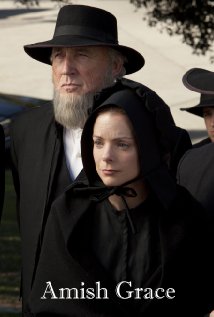"Parroting Left-Wing Lies"
| None | Light | Moderate | Heavy | |
|---|---|---|---|---|
| Language | ||||
| Violence | ||||
| Sex | ||||
| Nudity |
What You Need To Know:
J. EDGAR takes the typical left-wing approach to the persona of J. Edgar Hoover. It tries to portray Hoover’s own personal experience, but toward the end casts doubt on it. This equivocation cannot hide the fact that the movie is a deceitful left-wing attack. For a good refutation of its revisionist history, read former FBI Deputy Director “Deke” DeLoach’s book, HOOVER’S FBI.
Content:
(RoRoRo, HoHoHo, PCPCPC, RHRH, AC, B, L, V, SS, N, A, D, MM) Very strong Romantic worldview about the founder of the FBI, J. Edgar Hoover, with very strong but somewhat implied pro-homosexual sentiments that side with a long-time associate who allegedly (according to the movie) wanted to be Hoover’s homosexual lover and that posits that Hoover was a repressed homosexual because of his mother’s allegedly harsh reactions against homosexuality and cross-dressing, all of which makes the movie strongly politically correct and reminiscent of typical leftist revisionist history, but movie is sometimes too equivocal and unclear on where its real sympathies lie, plus movie seems to equivocate on whether Hoover’s strong anti-communism was justified or not, whereas the facts of history show his anti-communism certainly was justified and there are some moral elements about getting bad guys; three strong obscenities, one strong profanity, one light profanity; violence includes agents point guns at criminals, agents shown kicking man, explosion, two men fight in their dressing gowns or pajamas, image of kidnapped baby’s skeleton left in the woods, newsreel footage of 1960s riots; strong sexual content and immorality includes shadows of man and woman having adulterous sex, man forcibly kisses another man, man lays hand upon another man’s hand in a way that implies a repressed homosexual connection, unrequited homosexual feelings, man whispers “I love you” to retreating back of another man who apparently doesn’t hear the endearment, references to cross dressing and a boy being a “daffodil” meaning a homosexual, and distraught mourning man puts on his mother’s dress as he grieves; upper male nudity; alcohol use; smoking; and, man accused of lying, alleged violations of civil liberties (some of which may be true but is suspect because of other biased errors in movie), title character’s mother is depicted as an anti-homosexual bigot who gives her son a neurotic complex.
More Detail:
Clint Eastwood’s new movie J. EDGAR is another left-wing attempt to spit on the grave of FBI founder and director J. Edgar Hoover. It’s a biased representation, written by a left-wing homosexual activist in Hollywood, of Hoover’s public and private life that obviously hasn’t done the true due diligence required for such a movie. It’s too bad that Clint Eastwood apparently fell for the left-wing smears against Hoover. Radical extremists, including many leaders of the Democratic Party and the liberal press, have been spreading these smears for the past 40 years!
The movie opens with an old liberal shibboleth – the idea that, in 1919, Hoover, not Attorney General A. Mitchell Palmer or Democratic President Woodrow Wilson, was the main force behind a program in the Justice Department against left-wing radicals, which included many immigrants. In actuality, Wilson had already developed a program against immigrants during the war with Germany in 1917-18. Also, in 1919 Palmer appointed Hoover the head of the investigative team purging the immigrant community of those radicals after a series of anti-capitalist bombings, one of which was aimed at Palmer’s own home. The movie is correct in saying, however, that Hoover’s experience in leading this team led to a vigorous, lifelong anti-communist attitude. What the movie fails to note is that Hoover and his FBI also worked diligently to stop Nazi infiltration of America during World War II. This opening sets the stage for the movie’s left-wing revisionist history that Hoover pulled the strings of every Democratic Party president from Wilson to Johnson.*
After quelling the left-wing agitators in the 1920s, the movie describes how the FBI under Hoover went on to fight the gangsters and bank robbers causing mayhem during the Great Depression in the 1930s. It also shows Hoover reminiscing about his part in the Bureau’s investigation of the kidnapping of Charles Lindbergh’s baby.
At the same time, Hoover carries on these exploits, the movie says Hoover doted on his mother and became very close friends with a lawyer named Clyde Tolson whom he hired. The movie contends Hoover’s mother was a raving “homophobe” who forced Hoover to repress his homosexual tendencies. This frustrates Tolson, who clearly worships his friend and wants more than just the occasional handclasp from Hoover. In one scene, Hoover tells Tolson he’s thinking of marrying Hollywood actress Dorothy Lamour. Tolson goes berserk and punches Hoover. The two men get into a fight, at the end of which Tolson plants a huge kiss on Hoover’s lips, which have been bloodied during the fight. Hoover pushes Tolson off him, and Tolson angrily retreats to another room. As Tolson retreats, Hoover whispers, “I love you,” which Tolson apparently doesn’t hear.
Finally, J. EDGAR gives a brief overview of Hoover’s campaign against 1960s activists and radicals, including his wiretap of Martin Luther King’s bedroom as King has extramarital sex with some woman. The movie accepts the apparently slanderous left-wing lie that Hoover goaded Attorney General Robert Kennedy into letting him wiretap King. The historical record shows, however, that it was Kennedy and his brother, John, who ordered the wiretaps. What this movie leaves out is the fact that the Kennedys and Hoover had been informed that King’s closest white advisor, Stanley David Levison, was a secret top-level member of the Communist Party of the United States of America when he first met King in 1956 (see “The FBI and Martin Luther King,” ATLANTIC MONTHLY, July/August 2002, http://www.theatlantic.com/magazine/archive/2002/07/the-fbi-and-martin-luther-king/2537/). King repeatedly misled Kennedy officials about his close ties to Levison, who left the Communist Party in 1957. Apparently, Hoover and the Kennedys didn’t believe King was a communist, or that Levison would make him one, but they were worried that Levison’s radical character might influence King to make bad decisions leading to political unrest in the country. Of course, later, King did indeed sign onto the left-wing antiwar movement and radical anti-poverty schemes. The antiwar movement led to the murder of more than two million people in Cambodia and Vietnam, and the oppression of millions more. Also, the radical, big government anti-poverty schemes stemming from the 1960s and beyond have ruined the lives of many Americans, including millions of children and impressionable teenagers, not to mention wasted billions of taxpayer dollars.
Using the left-wing matrix, J. EDGAR alleges that part of its story is being told from Hoover’s own anti-communist viewpoint. At the end, however, the character playing Hoover’s friend Tolson refutes some of the scenes in Hoover’s story involving the Great Depression gangsters and the Lindbergh baby case. The viewer is then left to question whether Hoover’s lifelong hostility and war against communism and left-wing agitators was also full of lies. The movie equivocates a little bit here, however, because the Anti-American violence of many communist, left-wing agitators cannot be denied.
Besides its acceptance of a bunch of slanderous left-wing innuendo against Hoover, J. EDGAR leaves out a lot of exciting FBI material. That material includes the FBI’s cases against Nazi infiltrators, its gun battles with Great Depression gangsters, and its prevention of terrorist bombings on New York City during Thanksgiving 1962 by agents of Communist Cuban dictator Fidel Castro (see “Castro and Che’s Foiled (and Forgotten) 9/11,” May 6, 2011, http://frontpagemag.com/2011/05/06/castro-and-che’s-foiled-and-forgotten-911/ and VENDETTA: FIDEL CASTRO AND THE KENNEDY BROTHERS by historian William Breuer). Of course, this material undercuts the movie’s left-wing worldview, so it’s not surprising these things were left on the cutting room floor.
Several years ago, Ernest Borgnine made a one-man movie about the FBI founder, called simply HOOVER. That movie is based on the critically acclaimed book by Cartha “Deke” DeLoach, the Deputy Director of the FBI under Hoover, HOOVER’S FBI. DeLoach sets the record straight on Hoover, denying the more outrageous claims against Hoover that Eastwood’s movie promotes. For instance, DeLoach clearly refutes (as do other sources) the lies about Hoover’s alleged homosexuality. Our positive review of the Ernest Borgnine movie can be found at https://www.movieguide.org/reviews/movie/hoover.html.
Was J. Edgar Hoover a perfect person? No. Even his close associate for 28 years at the FBI, Deke DeLoach, admits that in his book, but people need to be extremely careful when they accept anything that the liberal, left-wing media tells them. MOVIEGUIDE® finds, more often than not, that nearly all of it is based on a house of cards.
In addition to its one-sided, scurrilous portrayal of a historical figure, J. EDGAR contains brief foul language, including an “f” word and a couple strong profanities, and a scene depicting the shadows of a man and a woman, presumably Martin Luther King and some woman not his wife, having illicit sex in the throes of passion. The violence is surprisingly light. See the CONTENT section above for more details.
By the way, J. EDGAR was written by the screenwriter for the homosexual propaganda movie MILK, who’s also a founding board member of the American Foundation for Equal Rights (AFER), which is leading the federal case against Proposition 8, the California referendum supporting the traditional biblical definition of marriage. This person has a clear homosexual, left-wing agenda that’s Christophobic.
* Note: The movie conveniently, of course, makes Republican President Richard Nixon out to be a real bad guy (he probably was, especially when he acted more like a liberal or “moderate”). In fact, the movie shows Hoover himself stopping Nixon from getting his hands on Hoover’s private files used for blackmailing his superiors. When Hoover dies, Nixon is shown ordering his men to search Hoover’s office for the private files. “I want those f***ing files!” he exclaims. In contrast to this, the movie eschews any negative portrayals of Democratic Presidents Wilson, Roosevelt, Truman, Kennedy, or Johnson.
Now more than ever we’re bombarded by darkness in media, movies, and TV. Movieguide® has fought back for almost 40 years, working within Hollywood to propel uplifting and positive content. We’re proud to say we’ve collaborated with some of the top industry players to influence and redeem entertainment for Jesus. Still, the most influential person in Hollywood is you. The viewer.
What you listen to, watch, and read has power. Movieguide® wants to give you the resources to empower the good and the beautiful. But we can’t do it alone. We need your support.
You can make a difference with as little as $7. It takes only a moment. If you can, consider supporting our ministry with a monthly gift. Thank you.
Movieguide® is a 501c3 and all donations are tax deductible.

Now more than ever we’re bombarded by darkness in media, movies, and TV. Movieguide® has fought back for almost 40 years, working within Hollywood to propel uplifting and positive content. We’re proud to say we’ve collaborated with some of the top industry players to influence and redeem entertainment for Jesus. Still, the most influential person in Hollywood is you. The viewer.
What you listen to, watch, and read has power. Movieguide® wants to give you the resources to empower the good and the beautiful. But we can’t do it alone. We need your support.
You can make a difference with as little as $7. It takes only a moment. If you can, consider supporting our ministry with a monthly gift. Thank you.
Movieguide® is a 501c3 and all donations are tax deductible.




 - Content:
- Content: 



